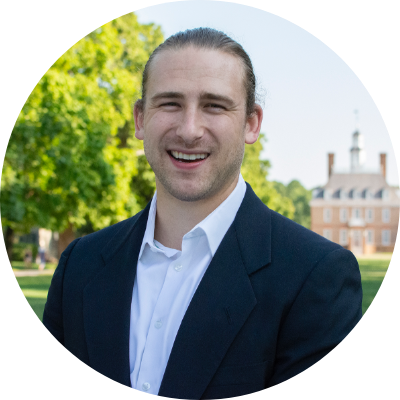BJC Fellows Reflections
Becoming an actively engaged citizen
By Taylor Bell

What I deeply appreciate about the BJC Fellows Program is that, for BJC, it is not enough to simply teach this knowledge. They want you to use it. Therefore, they take great time and energy to teach us why this knowledge is important and how we can use it to preserve religious liberty for all. Not only did BJC teach me the political and existential necessity of religious liberty, they deliberately taught us the nuanced philosophical, political, legal, religious and historical scaffolding that defines and supports religious liberty. And they educated me on the complex political dynamics through which religious liberty is protected and threatened. I now am not only confident in my understanding of religious liberty; I am also confident in my abilities to use this knowledge to defend religious liberty in the American political, religious and public spheres.
This interweaving of knowledge with action makes the BJC Fellows Program, at its core, deeper than any sort of professional development or educational opportunity. At its root it is an empowering invitation to become an actively engaged citizen and advocate for religious liberty. In democracy, citizenship means being present and deliberately engaged within the public sphere. Being an engaged citizen who enacts change doesn’t occur through public reservation and private commentary that resonates only within an ideological siloed echo-chamber. We need to be citizens in the democratic sense. Meaning we need to directly engage our diverse public square and its complex discourse on religious liberty, with all its political, legal and religious nuance, as an expressed commitment to religious liberty.
BJC prepared and empowered me for this engagement by modeling this public discourse amongst us. We were not a homogenous group; we were not an echo-chamber. We were not all white, were not all Christian, and didn’t vote the same way. We were a diverse group of individuals who came together to engage, support and challenge each other in a deeper engagement of religious liberty. In other words, BJC’s means were just as formational and the ends. The process of teaching just as important as the knowledge itself. So much so that I know being a BJC Fellow has prepared me to engage the public discourse on religious liberty in a truly constructive way because I have already begun to practice it.
Yet, perhaps the most profound takeaway from being a BJC Fellow is not the knowledge or preparation I received, but the imperative to protect religious liberty today. There was an inherent challenge interwoven into the fabric of the BJC Fellows Program: to use this knowledge and preparation in your daily private, professional and public lives, because religious liberty is at risk now. This imperative was not fear-driven hysteria. It emerged from a recognition of the American political climate and acknowledgement that the democratic understanding of religious liberty is being destabilized.
This destabilization is led by the mainstream political resurgence of Christian nationalism, a historical threat to democratic religious liberty gaining powerful traction once again. This political ideology, in conjoining American and Christian identities, defines religious liberty theocratically: that to be American one must be Christian and therefore Christianity is justified in having greater privilege over against religious minorities and people of no religion. This privileging violates both the Establishment and Free Exercise clauses of the First Amendment. BJC was not afraid to educate, engage and challenge us on this difficult and polarizing issue. Indeed, if we are to be advocates for religious liberty, we cannot avoid it.
The BJC staff shares a deep vocational commitment: religious liberty is essential for both American democracy and humanity, and BJC is committed to protecting it. This commitment was the tethering thread for the BJC Fellows program that wove everything else together. And in engaging this difficult and polarizing ideology, BJC both embodied and shared this commitment with us. Through this sharing, they invited and challenged us to join them in becoming advocates for religious liberty. I say “challenge” not as a high school football coach threatens their players with more wind sprints if they drop the next pass. I say “challenge” in that BJC helped me to see if I care about America and its people, then how can I not join in protecting religious liberty for all today? The challenge is embodied in the commitment to actively advocate for religious liberty. How can I be both an American citizen and Christian who cares about my country and all its people and not advocate for religious liberty for all? My answer, especially as a 2019 BJC Fellow, is that I can and must be an advocate. I can do nothing else. As BJC has taught me, it is how I both work to realize the ideal of American democracy and “love my neighbor as myself.”
For more from the 2019 class of BJC Fellows, visit BJConline.org/BJCFellows2019.




